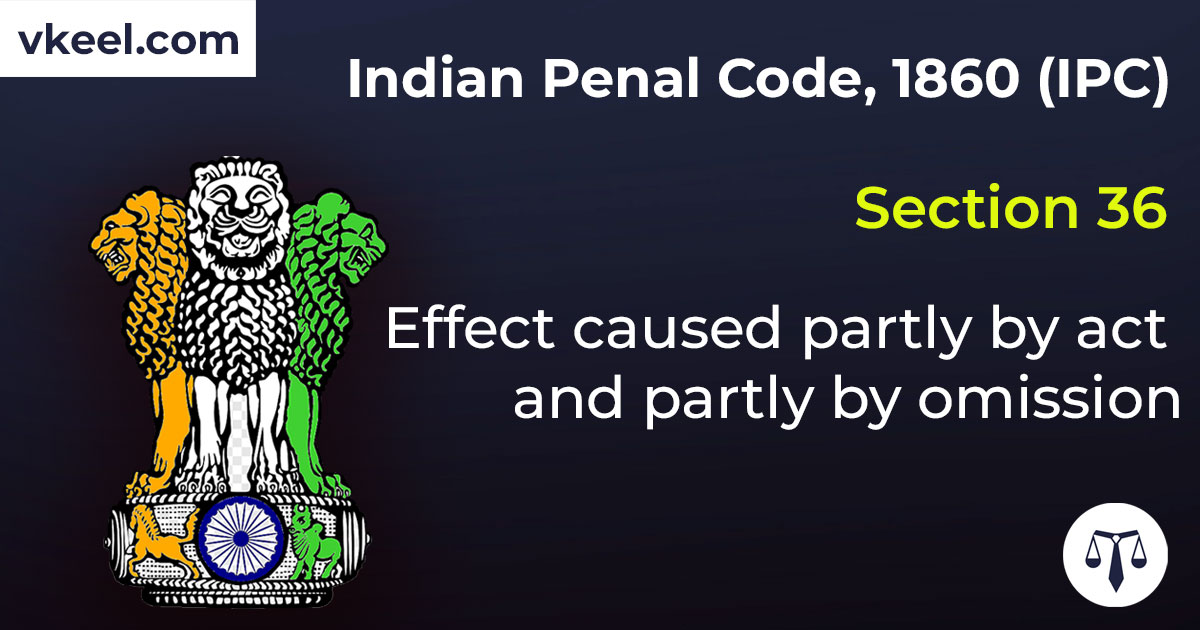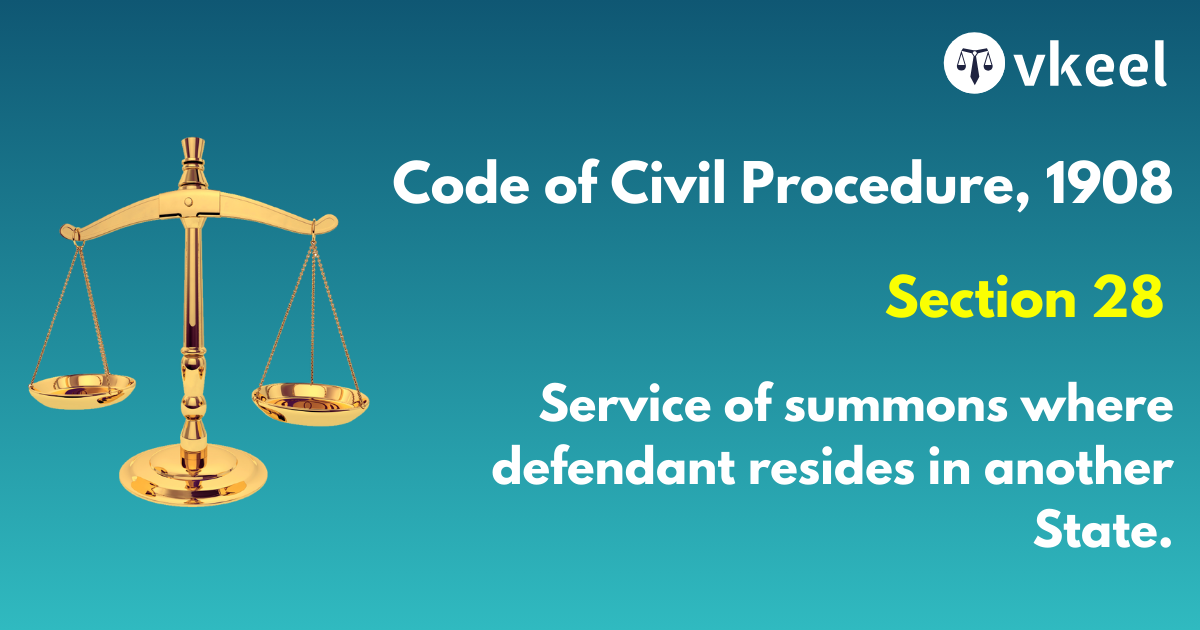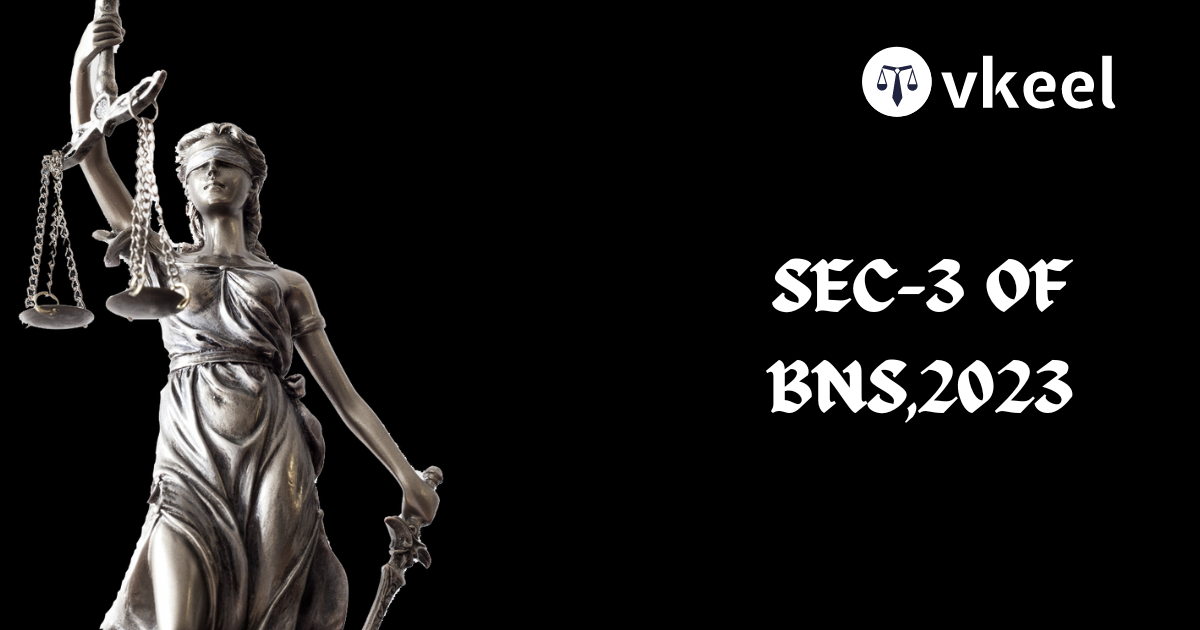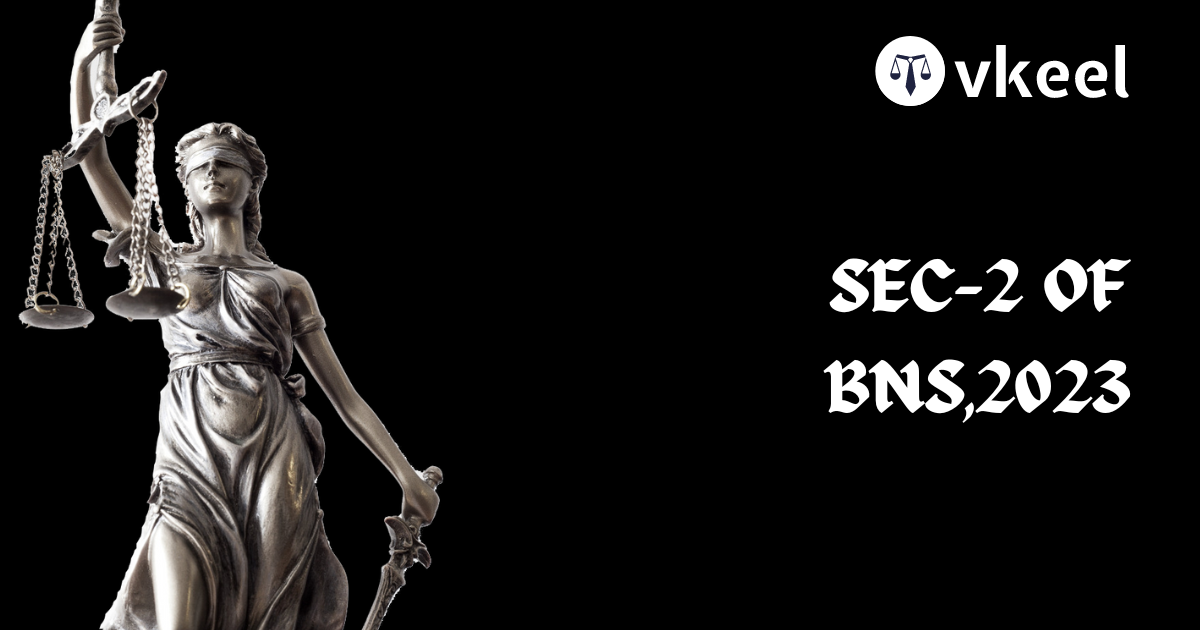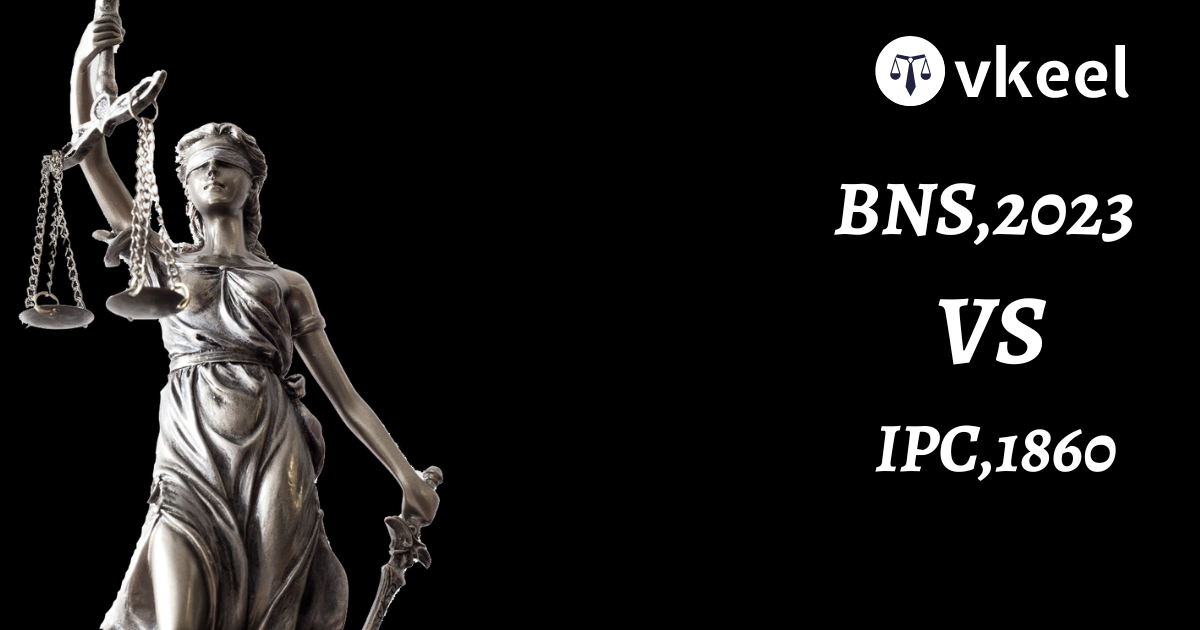Section 36 Indian Penal Code 1860 (IPC) – Effect caused partly by act and partly by omission
By Vkeel Team
Table of Contents
Description
“Section 36 Indian Penal Code 1860 (IPC)”
Wherever the causing of a certain effect, or an attempt to cause that effect, by an act or by an omission, is an offence, it is to be understood that the causing of that effect partly by an act and partly by an omission is the same offence.
Illustration
A intentionally causes Z’s death, partly by illegally omitting to give Z food, and party by beating Z. A has committed murder.
Overview of Section 36 of the IPC
Section 36 of the IPC states that if an act is done with the intention of causing a particular effect, and that effect is caused partly by the act and partly by an omission, the person who did the act will be held responsible for the effect caused by the act. In other words, the person will be held liable for the effect caused by their act even if the effect was partly caused by their failure to act.
For example, let’s say a person throws a stone at a bird intending to kill it. The stone hits the bird, but the bird does not die immediately. The person then leaves the scene without taking any steps to help the bird. If the bird dies as a result of the injuries caused by the stone, the person who threw the stone will be held responsible for causing the death of the bird, even though the death was partly caused by their failure to take steps to save the bird.
Elements of Section 36 of the Indian Penal Code
Section 36 of the Indian Penal Code has three essential elements, which are as follows:
- An offense committed partly by an act and partly by an omission
- The offender’s liability for the offense as if the entire offense was committed by him.
- The offender shall be punished for the offense as if he had committed the offense by an act, which he intended to cause or knew to be likely to cause the consequence, which occurred, by the means of the said omission.
Key Provisions of Section 36 of the IPC
Let’s take a closer look at the key provisions of Section 36 of the IPC.
1. Intention to cause a particular effect
Section 36 of the IPC applies only in cases where the person doing the act had the intention of causing a particular effect. In the example we discussed earlier, the person who threw the stone had the intention of killing the bird. If the person had thrown the stone without any intention of causing harm to the bird, Section 36 of the IPC would not apply.
2. Act and omission both involved
Section 36 of the IPC applies only in cases where the effect is caused partly by an act and partly by an omission. This means that both an act and an omission must be involved in order for Section 36 to apply.
3. Liability for effect caused by act
Section 36 of the IPC states that the person who did the act will be held responsible for the effect caused by the act, even if the effect was partly caused by their failure to act. This means that the person who did the act will be held liable for the entire effect, not just the part that was caused by the act.
4. Omission not amounting to an offence
Section 36 of the IPC applies only in cases where the omission does not amount to an offence. This means that if the failure to act is itself an offence, the person will be held liable for that offence, and Section 36 will not apply.
5. Examples of cases where Section 36 applies
Section 36 of the IPC can apply in a variety of situations. For example, if a person causes a fire by throwing a lit matchstick on a pile of dry leaves and then fails to take steps to extinguish the fire, they will be held responsible for the damage caused by the fire. Similarly, if a person hits a pedestrian with their car and then fails to take the victim to the hospital, they will be held responsible for the death of the victim if the victim dies as a result of their injuries.
Implications of Section 36 of the IPC
Section 36 of the IPC has several implications for the legal system and for society as a whole.
1. Encourages people to take responsibility
Section 36 of the IPC encourages people to take responsibility for the consequences of their actions. If people know that they will be held responsible for the entire effect caused by their act, they are
likely to take steps to prevent harm and to act responsibly in situations where their actions could have negative consequences.
2. Ensures accountability
Section 36 of the IPC ensures that individuals are held accountable for both their actions and their failures to act. This is important because it ensures that people are held responsible for the full extent of the harm they cause, rather than being able to avoid responsibility by claiming that their failure to act was not a direct cause of the harm.
3. Reduces harm
Section 36 of the IPC can help to reduce harm by encouraging people to take action to prevent harm and by holding individuals responsible for the consequences of their actions. This can help to prevent situations where harm is caused by a failure to act and can encourage people to take steps to prevent harm from occurring in the first place.
4. Clarifies liability
Section 36 of the IPC helps to clarify liability in situations where both an act and an omission are involved. This can help to ensure that legal decisions are made based on a clear understanding of the circumstances and can help to prevent confusion and ambiguity in legal cases.
Conclusion
Section 36 of the Indian Penal Code 1860 (IPC) addresses the issue of liability in situations where both an act and an omission are involved. This section is important because it ensures that individuals are held responsible for both their actions and their failures to act and encourages people to take responsibility for the consequences of their actions. Section 36 can help to reduce harm, clarify liability, and ensure accountability, making it an important provision in the Indian legal system.
Desctiption Source: indiacode
Disclaimer:
The information provided in the article is for general informational purposes only, and is not intended to constitute legal advice or to be relied upon as a substitute for legal advice. Furthermore, any information contained in the article is not guaranteed to be current, complete or accurate. If you require legal advice or representation, you should contact an attorney or law firm directly. We are not responsible for any damages resulting from any reliance on the content of this website.

